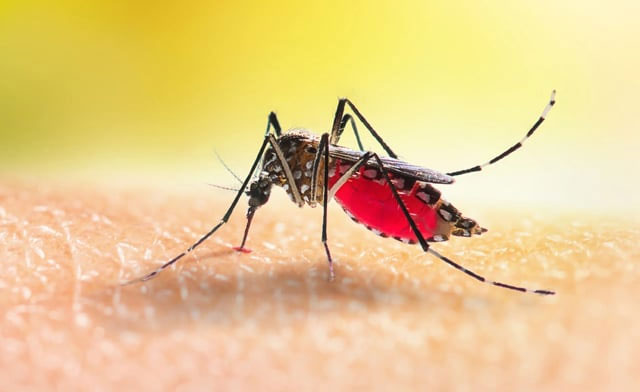Daijiworld Media Network - Dhaka
Dhaka, Nov 2: Bangladesh’s ongoing dengue outbreak continues to claim lives, with five more fatalities recorded in the 24 hours leading up to Sunday morning, bringing the total death toll in 2025 to 283, local media reported.
According to data from the Directorate General of Health Services (DGHS) cited by the United News of Bangladesh, the country also logged 1,162 new dengue cases during the same period, pushing the total number of infections this year to 71,675.
Of the latest deaths, three occurred in Dhaka South City Corporation (DSCC), while one each was reported in Dhaka North City Corporation (DNCC) and Rajshahi Division. Currently, 1,040 patients are undergoing treatment in hospitals across Dhaka, while another 2,982 are admitted in medical facilities across the rest of the country.

DGHS data indicates that in 2025, 62.1% of dengue patients are male, while 37.9% are female. Among the fatalities, men account for 53.4% and women 46.6%.
In comparison, Bangladesh recorded 575 dengue-related deaths in 2024, with 101,214 cases and 100,040 recoveries, reflecting that while this year’s infection rate is higher, the fatality rate has decreased, according to health officials.
DGHS Director General Abu Jafor, speaking at a press briefing on the ‘Typhoid Vaccination Campaign 2025’, noted that although the number of infections this year has surpassed last year’s figures, the proportion of deaths to infections is lower.
He emphasised that mosquito control and the destruction of breeding sites remain the most effective ways to prevent dengue, urging citizens to take personal responsibility.
“People must use mosquito nets and take protective measures. These are individual responsibilities. If we neglect them, it will be very difficult to eliminate dengue,” he said.
Jafor highlighted a worrying trend — over half of dengue deaths occur on the first day of hospital admission, suggesting that patients are seeking medical help too late. He called for early diagnosis and timely medical care, stating that dengue detected in its initial stage can often be treated safely at home under medical supervision.
Health experts continue to stress that dengue has no specific cure, and early detection combined with proper treatment significantly reduces the risk of fatal complications. The World Health Organization (WHO) has reiterated that prevention and control rely heavily on vector control, particularly in densely populated urban and semi-urban areas where the Aedes mosquito thrives.